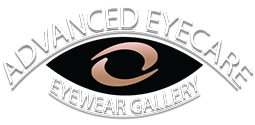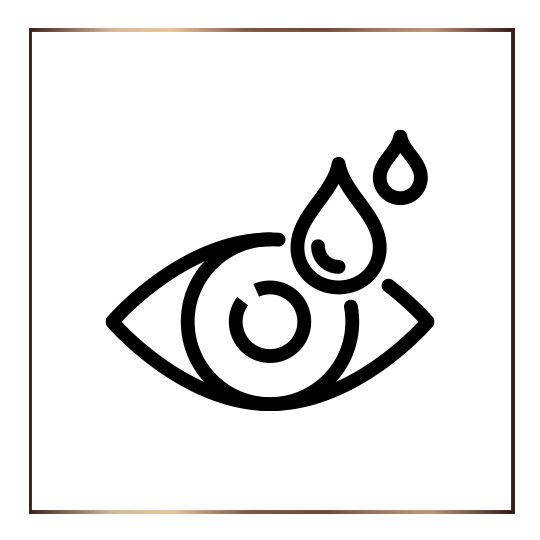Your Visual Health Is Our Priority
At Advanced Eyecare & The Eyewear Gallery, we want to help preserve your long-term vision against the different forms of eye disease.
An eye exam with us is about more than updating your prescription—it also allows our team to check for signs of eye disease. Eye disease can come in different forms, such as cataracts, diabetic eye disease, macular degeneration, glaucoma, and more.
We take a hands-on approach to detecting, monitoring, and managing eye disease. Contact us to schedule your appointment today.
Request AppointmentEarly Detection Through Diagnostic Technology

We implement diagnostic technology such as OCT, visual field testing, and retinal imaging to capture all the details of your eye health. The earlier we detect signs of eye disease, the sooner our team can begin preparing a personalized treatment plan to preserve your vision.
Regular eye exams are important to help our team detect possible issues early and stay up-to-date on your eye health.

Getting to Know the Different Forms of Eye Disease
Eye disease can affect your eye health and vision in many forms, all with varying symptoms. Helping our patients understand the different forms of eye disease, and some of the early signs can help them stay on top of their eye exam schedule.
We aim to address your eye disease issues early through consistent exams and education before your vision and eye health are compromised.
Cataract Management
We offer pre-cataract surgery evaluation and post-op care.
Cataracts develop when the normally clear lens of the eye becomes clouded. It can include symptoms like blurry vision, dim or yellowed vision, and difficulty seeing at night. Cataracts begin forming when proteins in the eye form clumps that prevent the lens from sending clear images to the retina, the thin layer of tissue that lines the back of the eye.If cataracts progress to a later stage and prevent you from going about your daily activities, such as reading or driving, cataract surgery is the only option to remove them.
Glaucoma
Glaucoma is a group of eye conditions that cause irreversible damage to the optic nerve, which is responsible for sending visual information to your brain. Damage to the optic nerve can lead to vision loss and blindness if not detected and treated early.Damage from glaucoma can be caused by high pressure in the eye, referred to as intraocular pressure. Age, family history, and previous eye injuries can all be glaucoma risk factors. Maintaining a regular exam schedule to monitor your vision is essential.
Diabetic Eye Disease
Diabetes can increase the risk of developing eye diseases such as glaucoma, cataracts, and diabetic retinopathy, which is the primary vision loss concern for patients with diabetes.
Diabetic retinopathy is a condition that causes damage to the blood vessels of the retina.
Signs and symptoms of diabetic retinopathy can include:
-
- Black spots or holes in your vision
-
- A loss of central vision
-
- Blurry vision
-
- Difficulty seeing at night
We use optical coherence tomography (OCT) and retinal imaging in our diabetic eye exams to assist with the early detection of diabetic eye issues.
Age-Related Macular Degeneration
Age-related macular degeneration is a progressive disease that affects your central vision, damaging the macula. This damage can make things like reading and driving much more difficult.
AMD is a leading cause of vision loss among older adults, and there are 2 main types:
-
- Dry AMD is the more common form of the disease and occurs in early, intermediate, and late stages. This form of AMD occurs when the macula thins with age.
-
- Wet AMD is the less common form of the disease and causes faster and more severe vision loss. Wet AMD occurs when abnormal blood vessels grow in the back of the eye and damage the macula.
We implement OCT and visual field testing to detect and manage AMD.
Conjunctivitis
Conjunctivitis is characterized by an inflammation of the conjunctiva, the transparent tissue covering the inner eyelids and whites of your eyes. This inflammation causes the blood vessels in the conjunctiva to become more visible, leading to eye redness.
There are 3 types of conjunctivitis:
- Viral conjunctivitis
- Bacterial conjunctivitis
- Allergic conjunctivitis
While many minor cases can improve within 2 weeks, some can develop into serious corneal inflammation and threaten sight. If you suspect conjunctivitis, visit us at Advanced Eyecare & The Eyewear Gallery for an examination and treatment.
Our Diagnostic Technology
Patient education is just one side of the coin—we also implement diagnostic technology throughout our eye exams to assist in the early detection of eye disease.
Our diagnostic technology includes OCT, digital retinal imaging, and visual field testing to help our team detect signs of eye disease early. Early detection allows our team to get a headstart on preparing a personalized treatment method that works for your needs.
Optical Coherence Tomography
Optical coherence tomography creates high-resolution, cross-sectional images of your eyes using light waves, allowing us to check for underlying issues. This 3D image of your retina allows us to explore if your retinal layers are distorted and check for eye diseases like macular degeneration and diabetic retinopathy.
The OCT scan is quick and comfortable. Our team will walk you through the process when you visit us for your appointment.
Visual Field Testing
Visual field testing is a noninvasive test that measures the full horizontal and vertical range of what you can see peripherally, helping our team detect potential blind spots that could indicate eye health issues.
Visual field testing is efficient and crucial for the early detection and monitoring of eye diseases like glaucoma and macular degeneration. This type of testing can provide a clear map of your visual field, which can be helpful for our team when assessing your treatment options.
Retinal Imaging
Retinal imaging allows our team to take quick, noninvasive, detailed images of your eye. These high-resolution images allow us to examine hard-to-see details and check for signs of eye diseases like glaucoma, diabetic retinopathy, macular degeneration, and more. Retinal imaging can help us capture the details of your eyes when you visit us for a comprehensive eye exam.
Preserving Your Vision for Years to Come
Our comprehensive eye disease services are designed to help preserve your vision for years to come. Through regular eye exams, technology, and patient education, we aim to prioritize your eye health and determine what treatment and management options will benefit you.
Contact us to schedule your appointment and get a headstart on eye disease management.
Request AppointmentOur Location

Our Address
- 425 N Main Street
- Myrtle Creek, OR 97457
Contact Information
- Phone: 541-863-5258
- Fax: 541-863-6000
- Email: [email protected]
Our Hours
- Monday: 9:00 AM – 5:30 PM
- Tuesday: 9:00 AM – 5:30 PM
- Wednesday: 9:00 AM – 5:30 PM
- Thursday: 9:00 AM – 5:30 PM
- Friday: 9:00 AM – 2:00 PM
- Saturday: Closed
- Sunday: Closed
Monday – Thursday between 12:00 PM – 1:00 PM

Our Brands














